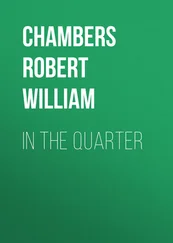Robert Chambers - The Maids of Paradise
Здесь есть возможность читать онлайн «Robert Chambers - The Maids of Paradise» — ознакомительный отрывок электронной книги совершенно бесплатно, а после прочтения отрывка купить полную версию. В некоторых случаях можно слушать аудио, скачать через торрент в формате fb2 и присутствует краткое содержание. Жанр: foreign_prose, на английском языке. Описание произведения, (предисловие) а так же отзывы посетителей доступны на портале библиотеки ЛибКат.
- Название:The Maids of Paradise
- Автор:
- Жанр:
- Год:неизвестен
- ISBN:нет данных
- Рейтинг книги:5 / 5. Голосов: 1
-
Избранное:Добавить в избранное
- Отзывы:
-
Ваша оценка:
- 100
- 1
- 2
- 3
- 4
- 5
The Maids of Paradise: краткое содержание, описание и аннотация
Предлагаем к чтению аннотацию, описание, краткое содержание или предисловие (зависит от того, что написал сам автор книги «The Maids of Paradise»). Если вы не нашли необходимую информацию о книге — напишите в комментариях, мы постараемся отыскать её.
The Maids of Paradise — читать онлайн ознакомительный отрывок
Ниже представлен текст книги, разбитый по страницам. Система сохранения места последней прочитанной страницы, позволяет с удобством читать онлайн бесплатно книгу «The Maids of Paradise», без необходимости каждый раз заново искать на чём Вы остановились. Поставьте закладку, и сможете в любой момент перейти на страницу, на которой закончили чтение.
Интервал:
Закладка:
Without turning my head I said: “It is difficult to believe that there is war anywhere in the world – is it not, mademoiselle?”
“Not if one knows the world,” she said, indifferently.
“Do you know it, my child?”
“Sufficiently,” she said.
She had opened again the book which she had been reading when I first noticed her. From my saddle I saw that it was Molière. I examined her, in detail, from the tips of her small wooden shoes to the scarlet velvet-banded skirt, then slowly upward, noting the laced bodice of velvet, the bright hair under the butterfly coiffe of Alsace, the delicate outline of nose and brow and throat. The ensemble was theatrical.
“Why do you tend turkeys?” I asked.
“Because it pleases me,” she replied, raising her eyebrows in faint displeasure.
“For that same reason you read Monsieur Molière?” I suggested.
“Doubtless, monsieur.”
“Who are you?”
“Is a passport required in France?” she replied, languidly.
“Are you what you pretend to be, an Alsatian turkey tender?”
“Parbleu! There are my turkeys, monsieur.”
“Of course, and there is your peasant dress and there are your wooden shoes, and there also, mademoiselle, are your soft hands and your accented speech and your plays of Molière.”
“You are very wise for a hussar,” she said.
“Perhaps,” said I, “but I have asked you a question which remains parried.”
She balanced the hazel rod across her shoulders with a faintly malicious smile.
“One might almost believe that you are not a hussar, but an officer of the Imperial Police,” she said.
“If you think that,” said I, “you should answer my question the sooner – unless you come from La Trappe. Do you?”
“Sometimes.”
“Oh! And what do you do at the Château de la Trappe?”
“I tend poultry – sometimes,” she replied.
“And at other times?”
“I do other things, monsieur.”
“What things?”
“What things? Mon Dieu, I read a little, as you perceive, monsieur.”
“Who are you?” I demanded.
“Oh, a mere nobody in such learned company,” she said, shaking her head with a mock humility that annoyed me intensely.
“Very well,” said I, conscious every moment of her pleasure in my discomfiture; “under the circumstances I am going to ask you to accept my escort to La Trappe; for I think you are Mademoiselle Elven, recently of the Odéon theatre.”
At this her eyes widened and the smile on her face became less genuine. “Indeed, I shall not go with you,” she said.
“I’m afraid I’ll have to insist,” said I.
She still balanced her hazel rod across her shoulders, a smile curving her mouth.
“Monsieur,” she said, “do you ride through the world pressing every peasant girl you meet with such ardent entreaties? Truly, your fashion of wooing is not slow, but everybody knows that hussars are headlong gentlemen – ‘Nothing is sacred from a hussar,’” she hummed, deliberately, in a parody which made me writhe in my saddle.
“Mademoiselle,” said I, taking off my forage-cap, “your ridicule is not the most disagreeable incident that I expect to meet with to-day. I am attempting to do my duty, and I must ask you to do yours.”
“By taking a walk with you, beau monsieur?”
“I’m afraid so.”
“And if I refuse?”
“Then,” said I, amiably, “I shall be obliged to set you on my horse.” And I dismounted and went toward her.
“Set me on – on that horse?” she repeated, with a disturbed smile.
“Will you come on foot, then?”
“No, I will not!” she said, with a click of her teeth.
I looked at my watch – it lacked five minutes to one.
“In five minutes we are going to start,” said I, cheerfully, and stood waiting, twisting the gilt hilt-tassels of my sabre with nervous fingers.
After a silence she said, very seriously, “Monsieur, would you dare use violence toward me?”
“Oh, I shall not be very violent,” I replied, laughing. I held the opened watch in my hand so that she could see the dial if she chose.
“It is one o’clock,” I said, closing the hunting-case with a snap.
She looked me steadily in the eyes.
“Will you come with me to La Trappe?”
She did not stir.
I stepped toward her; she gave me a breathless, defiant stare; then in an instant I caught her up and swung her high into my saddle, before either she or I knew exactly what had happened.
Fury flashed up in her eyes and was gone, leaving them almost blank blue. As for me, amazed at what I had done, I stood at her stirrup, breathing very fast, with jaws set and chin squared.
She was clever enough not to try to dismount, woman enough not to make an awkward struggle or do anything ungraceful. In her face I read an immense astonishment; fascination seemed to rivet her eyes on me, following my every movement as I shortened one stirrup for her, tightened the girths, and laid the bridle in her half-opened hand.
Then, in silence, I led the horse forward through the open gate out into the wet meadow.
Wading knee-deep through soaking foliage, I piloted my horse with its mute burden across the fields; and, after a few minutes a violent desire to laugh seized me and persisted, but I bit my lip and called up a few remaining sentiments of decency.
As for my turkey-girl, she sat stiffly in the saddle, with a firmness and determination that proved her to be a stranger to horses. I scarcely dared look at her, so fearful was I of laughing.
As we emerged from the meadow I heard the cannon sounding again at a great distance, and this perhaps sobered me, for presently all desire of laughter left me, and I turned into the road which led through the birch thicket, anxious to accomplish my mission and have done with it as soon as might be.
“Are we near La Trappe?” I asked, respectfully.
Had she pouted, or sulked, or burst into reproaches, I should have cared little – in fact, an outburst might have relieved me.
But she answered me so sweetly, and, too, with such composure, that my heart smote me for what I had done to her and what I was still to do.
“Would you rather walk?” I asked, looking up at her.
“No, thank you,” she said, serenely.
So we went on. The spectacle of a cavalryman in full uniform leading a cavalry horse on which was seated an Alsatian girl in bright peasant costume appeared to astonish the few people we passed. One of these foot-farers, a priest who was travelling in our direction, raised his pallid visage to meet my eyes. Then he stole a glance at the girl in the saddle, and I saw a tint of faded color settle under his transparent skin.
The turkey-girl saluted the priest with a bright smile.
“Fortune of war, father,” she said, gayly. “Behold! Alsace in chains.”
“Is she a prisoner?” said the priest, turning directly on me. Of all the masks called faces, never had I set eyes on such a deathly one, nor on such pale eyes, all silvery surface without depth enough for a spark of light to make them seem alive.
“What do you mean by a prisoner, father?” I asked.
“I mean a prisoner,” he said, doggedly.
“When the church cross-examines the government, the towers of Notre Dame shake,” I said, pleasantly. “I mean no discourtesy, father; it is a proverb in Paris.”
“There is another proverb,” observed the turkey-girl, placidly. “Once a little inhabitant of hell stole the key to paradise. His punishment was dreadful. They locked him in.”
I looked up at her, perplexed and irritated, conscious that she was ridiculing me, but unable to comprehend just how. And my irritation increased when the priest said, calmly, “Can I aid you, my child?”
Читать дальшеИнтервал:
Закладка:
Похожие книги на «The Maids of Paradise»
Представляем Вашему вниманию похожие книги на «The Maids of Paradise» списком для выбора. Мы отобрали схожую по названию и смыслу литературу в надежде предоставить читателям больше вариантов отыскать новые, интересные, ещё непрочитанные произведения.
Обсуждение, отзывы о книге «The Maids of Paradise» и просто собственные мнения читателей. Оставьте ваши комментарии, напишите, что Вы думаете о произведении, его смысле или главных героях. Укажите что конкретно понравилось, а что нет, и почему Вы так считаете.












